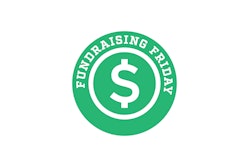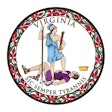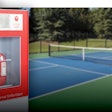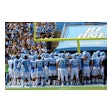Youth sports leagues introduce a mandatory behavior program for parents.
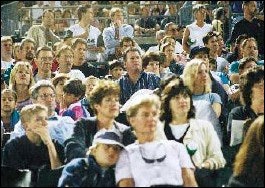
Incidents of parental rage in youth sports have become alarmingly commonplace. In July, the father of a Massachusetts youth hockey player was charged with manslaughter after fatally beating the father of another player.
In September, a soccer game played between 8- and 9-year-old New Jersey boys ended in a tie and a fistfight between their parents. And that same month in Florida, about 100 coaches, players and parents brawled just moments after the end of a football game.
With the increasing frequency of these violent situations, many youth sports leagues have looked for ways to prevent verbal abuse and violence from occurring at their games. Several of these concerned leagues have found assistance through the Parents Association for Youth Sports (PAYS) program, developed by the National Alliance for Youth Sports. The PAYS program is a 30-minute training session designed to bring parents together before their children start a sport season. Parents meet with coaches, view a video, receive a handbook and buttons that promote sportsmanship, and sign a code of ethics.
Acertain amount of flexibility is built into the PAYS program to accommodate each league's specific needs. If a league chooses to use the program, it can mold the 30-minute training session to fit its own broader program. For example, El Paso, Texas, was experiencing many problems with parents of youth sports participants, including a situation in which one parent stabbed another parent on the field at a youth football game. When the city made the PAYS program mandatory for parents in all its youth leagues, it planned a three-hour training session, still using the 30-minute PAYS structure, but adding its own programs as well. Its session includes a child crisis center representative who talks about child abuse, a child psychologist who speaks about different performance levels of children, and a segment in which parents are required to review every one of the league's rules.
"We sit down with the youth sports leagues before they start the program and discuss how their program is set up so that when they implement the PAYS program, it's part of what they do and not just a session that's coming in from an outside group," says Kathleen Avitt, National Program Director of PAYS. "We want them to have something that's going to work for them."
In New Jersey, what works is a hybrid of the PAYS program and a specially developed local program. Although the Upper Mountain Skating Association didn't experience any brawls, it did see a lot of back-stabbing and harmful gossip among parents. Hoping to create a more positive environment for its youths, the UMSA initiated a mandatory PAYS program this fall. During monthly sessions, the association goes over its own rules, as well as those of the PAYS program.
It explains what the parents will get out of the session and why it's important. It also points out some of the unfortunate events involving parents in the past.
"We try to say to parents, 'If you have an issue or a problem, address it after the session with the coach in private. If you have a problem with the coach and you're not sure how to handle it, you can approach the board of the association in a formal manner,' so that we're dealing with a constructive process that we can follow," says Susan Ward, president of the UMSA. "We're hoping that what we'll create with this is a better understanding of how to handle issues and to do it in a more discreet fashion."
That's the goal of the Glendale (Ariz.) Parks and Recreation Department. Officials there see the PAYS program as a proactive step to prevent something catastrophic from happening in the future, says Michael Gregory, recreation coordinator. Glendale officials, while insistent that no parental violence had occurred in the program, said they noticed several situations in which a parent approached a coach in the middle of a game to complain that his or her child was not playing.
"We have a commitment to the youths in our city to provide them with the highest quality program, whether sports, cultural events or whatever it may be," says Gregory. "We want to educate the parents and let them know that their concerns may be legitimate, but that there is a time and a place to address them with the coach." The parks and recreation department in Glendale does not yet require attendance at its PAYS program, but it expects to make the program mandatory in fall 2001.
Is the PAYS program working? Jeff Leslie, president of the Jupiter-Tequesta Athletic Association in Jupiter, Fla., which in January 2000 was the first organization to make the PAYS program mandatory, says yes. According to Leslie, parents have overwhelmingly accepted it it has made to the atmosphere in which their children are playing. "We've had a tremendous decrease in the number of serious incidents, positive peer pressure among parents, lots of self-regulation, and we think people are having more fun," Leslie says. "We've received tons of comments from referees, coaches and parents, and everybody is saying how it has really hit its mark." (It's too early in the game for PAYS officials in other communities to make such emphatic endorsements of the program.)
While no one knows for sure what has caused the drastic increase in violence among parents at youth sporting events, the PAYS program is at least helping leagues make parents aware of the problem and encourage behavior that will make youth sports a much more positive experience for all involved.
"There's probably nothing more difficult for parents than watching their kid compete," says Leslie. "It's got to be one of the most emotional things there is. A lot of the parents can take the losing and the abuse themselves, but when they watch their kids fail, or not achieve the heights that they expect, it just brings out the worst emotions in them."
















